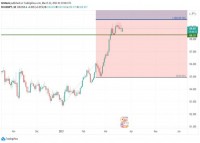|
Opalesque Industry Update - Industry experts have debated the end state of convergence between traditional (regulated)
investment managers and hedge fund managers for years. Perspectives vary about whether
competition, regulation, portfolio allocation trends, and market events will eventually push
traditional investment managers and hedge funds towards common ground. Those who do
believe that convergence is inevitable frequently do not agree about the pace at which change
will occur or the extent to which the lines will blur. Now that the worst of the recent economic crisis is seemingly in our rear view mirror, we thought it was time to re-examine the current state – and projected future state – of the Challenge convergence between traditional investment managers and hedge fund managers. Are traditional managers launching new products that contain shorting components or deploying additional assets in hedge funds or fund of hedge funds? Are hedge funds launching funds regulated by the Investment Company Act of 1940 or “hybrid funds” that are not regulated but adopt characteristics of regulated funds? Have market events caused hedge funds to provide Hedge Fund Fees greater transparency into investment processes and improve reporting? These strategic moves – or plans to take such steps – are all evidence of steps towards convergence. This report details the results of a new study by BNY Mellon and Greenwich Associates that examines the extent to which the lines have blurred between traditional investment managers Requirements that mainly employ long-only strategies and hedge fund managers. The findings of this study are based on 71 in-depth interviews with traditional investment managers, hedge funds, and institutional investors. Breaking Down the Walls approaches the topic of convergence with a 360 degree perspective. Key Findings: • Despite years of industry deliberation, convergence remains an emerging trend. 52% of hedge funds and 46% of traditional investment managers participating in the study report taking some steps in the direction of convergence. However, only a very small number of investors currently use hedge fund managers for non-hedge strategies or traditional managers for hedge fund-like strategies. • Managers do not, however, universally acknowledge “convergence” as a trend. Some managers have offered cross-over products for more than a decade. Additionally, most hedge funds see changes they are making to their products and policies not as part of an attempt to “converge” but rather as a natural progression of their own business and investment models, which allows them the flexibility to adopt whatever approaches have the best chance of meeting client needs and delivering strong investment results. • The trend was accelerated by the financial crisis. Convergence between hedge funds and traditional managers accelerated during the financial crisis as poor investment performance and difficult business conditions pressured managers to diversify product offerings and increase transparency in response to investor demands. • Traditional and hedge fund managers alike appear to underestimate the challenge at hand. The majority of institutional investors emphatically state that they would not be receptive to using hedge fund managers for non-hedge strategies or traditional managers for hedge fund-like strategies. Convergence success will require managers to develop new distribution capabilities, provide greater transparency, revise fee structures, and polish messaging about topics such as alpha and risk. • Institutional Investors perceive traditional managers as having several advantages when running hedge-like strategies. These advantages include a deeper understanding of client needs, and strong brands and reputations. Among their perceived disadvantages: a lack of experience in shorting stocks. • Conversely, investors recognize hedge funds maintain certain competitive advantages in managing long-only strategies. Investors believe hedge fund managers have an advantage over traditional managers based on their sophisticated risk management capabilities and their ability to generate superior returns. However, investors warn that hedge funds could cede these central competitive advantages in a more transparent environment. • The trend towards convergence is compounding pressure on fees at some hedge funds. Hedge funds with strong investment performance still command traditional fee levels, while funds with uneven performance are feeling pressure to lower fees. • Perceptions regarding the likely impact of regulation depend upon your vantage point. Traditional managers and hedge fund managers are considerably less likely than institutional investors to believe that there are regulations on the horizon that will impact the trend towards convergence. • The use of external service providers is on the rise. Approximately one quarter of participating managers say their efforts at convergence generate a heightened need for better integration of front, middle and back-office functions. About one third of managers currently outsource components of their back office. As fund managers seek to compete beyond their historical footprint, new capabilities are required, and leveraging external service providers will play an increasingly pivotal role in their success. Download the full white paper (pdf) from Opalesque: Source - FG |
Industry Updates
BNY Mellon / Greenwich white paper: Breaking down the walls: Convergence between traditional investment managers and hedge fund managers
Monday, April 26, 2010
|
|





 RSS
RSS







